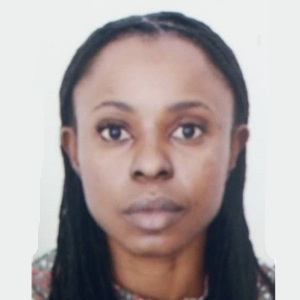
Biography
Dr. Nyamwaya Munthali holds a PhD of International Development Studies from Wageningen University and a PgD Teaching Methodology from University of Lusaka. Prior to joining the University of Zambia – Development Studies Department as a lecturer and researcher, she was a lecturer for development and communication studies at Cavendish University Zambia (CUZ). At CUZ she served as Acting Head of Department for communication-related programmes, Research Coordinator under the School of Arts, Education and Social Sciences and as a member of the University’s PhD and Publications Board.
Her research interests that involve field work in Zambia, Tanzania, India and Ghana, focus on the social situated-ness of information and communication technologies (ICTs), the role of strategic (digital) communication mechanisms in fostering development, and the broader (negative) implications of technological innovation. As both an academic and activist, she is also pursuing research on the decolonisation of knowledge (processes)—particularly within the field of development studies. Based on her research work (2020 to 2025) she has given guest lectures at a number of institutions, including the University of Jyväskylä, University of Sheffield, Durham University as well as her alma mater University of Zambia and Wageningen University. At the same time, she sits on the Editorial Board of the Knowledge Management for Development Journal.
Additionally, Dr Munthali has over eight years’ experience working in the Zambian agriculture sector on mobile innovation, livelihood enhancing, and business and social enterprise development projects. Her roles have included project management and contributing to the design and implementation of monitoring, evaluation and communication systems. She has also consulted for organisations such as Friedensau Institute for Evaluation Institute, OXFAM, International Food and Policy Research Institute, SADC Business Council and The Dutch Ministry of Economic Affairs, Agriculture and Innovation
Qualifications
PhD International Development Studies – ICT for development; communication and (agricultural) innovation
MSc International Development Studies – specialisation communication, technology and innovation
BMC Mass Communication – minor development studies
PgD Teaching/Lecturering Methodology
Courses taught
DEV 1150 Introduction to development studies
DEV 2254 Research methods for development studies
DEV 4250 Science, technology, innovation and development
DEV 9350 Environment and sustainable development
DEV 5122 Project management
Cummings, S., Munthali, N. and Shapland, P. (2022) ‘A systemic approach to the decolonisation of knowledge: Implications for scholars of development studies’, in D. Ludwig et al. (eds) The Politics of Knowledge in Inclusive Development and Innovation. London: Routledge. Available at: https://doi.org/doi.org/10.4324/9781003112525.
Cummings, S., Munthali, N. and Sittoni, T. (2024) ‘Epistemic Justice as a “ New Normal ?” Interrogating the Contributions of Communities of Practice to Decolonization of Knowledge’, Sustainable Development, pp. 1–18. Available at: https://doi.org/10.1002/sd.3285.
Galarza-Villamar, J.A., […] Munthali, N., […] et al. (2024) ‘The role of connective interventions in the collective management of public-bad problems: Evidence from a socio-ecological system perspective’, NJAS: Impact in Agricultural and Life Sciences, 96(1). Available at: https://doi.org/10.1080/27685241.2023.2293846.
Jomantas, S., […] Munthali, N., […] et al. (2021) Looking at healthcare to improve agircultural service delivery: the case of online chatgroup. CABI One Health. Avilable at: https://www.cabi.org/cabi-publications/looking-at-human-healthcare-to-improve-agricultural-service-delivery-the-case-of-online-chatgroups/
Jomantas, S., Munthali, N., et al. (2022) ‘Mobilising knowledge sharing in the agricultural advisory system: The case of ICT-facilitated plant doctor chat groups.’, in D. Ludwig et al. (eds) The Politics of Knowledge in Inclusive Development and Innovation. London: Routledge. Available at: https://doi.org/10.4324/9781003112525.
Kibombwe, F., Munthali, N., et al. (2024). Recalibrating the geography of thought: enhancing a new way of relationship between Africa and Europe from an interculturality perspective. Africa Europe Relations and AU and EU partnership in a multi-crises World. Addis Ababa, 25th to 27th March, 2024.
Matenga, T. and Munthali, N. (2022). The Zambian Cyber Act’s effect on political news reporting on social media. IAMCR Conference – Communication Research in the Era of Neo-Globalisation: Reorientations, Challenges and Changing Contexts, Beijing 11th – 15th July, 2022.
Munthali, N., Leeuwis, C., et al. (2018) ‘Innovation intermediation in a digital age: Comparing public and private new-ICT platforms for agricultural extension in Ghana’, NJAS - Wageningen Journal of Life Sciences, 86–87, pp. 64–76. Available at: https://doi.org/10.1016/j.njas.2018.05.001.
Munthali, N., Lie, R., et al. (2021) ‘Intermediation Capabilities of Information and Communication Technologies (ICTs) in Ghana’s Agricultural Extension System’, The African Journal of Information and Communication, 28(28), pp. 1–37. Available at: https://doi.org/10.23962/10539/32212.
Munthali, N., van Paassen, A., et al. (2021) ‘Social media platforms, open communication and problem solving in the back-office of Ghanaian extension: A substantive, structural and relational analysis’, Agricultural Systems, 190. Available at: https://doi.org/10.1016/j.agsy.2021.103123.
Munthali, N. and Kirina, T. (2023) ‘Decolonising gender and development. The influence of Ubuntu philosophy on the articulation of African feminism.’, in O. Muntanga and T. Marovah (eds.) Global SouthTheories. London: Routledge. ISBN 9781032415970
Munthali, N., Kirina, T., et al. (2024) ‘Nature based solutions at the frontier of the climate change policy dialogue. A vehicle for the epistemicide or appropriation of indigenous knowledge?’ Africa Europe Relations and AU and EU partnership in a multi-crises World. Addis Ababa, 25th to 27th March, 2024.
African feminism
Communication/ICT for development
Digital/social/illicit entrepreneurship
Decolonising knowledge (processes) in development studies
Uberisation of mechanisation – Wageningen University, funded by Wageningen Interdisciplinary Research and Education Fund (INREF) (2022 -2025)
AfriquEurope research collaboration – University of Bradford; University of PeloPonese; Sumy State University Ukraine, Cavendish University and other African Universities, funded by the European Union (2023 – 2025)
University of Jyväskylä Visiting Fellow grant (2026)
